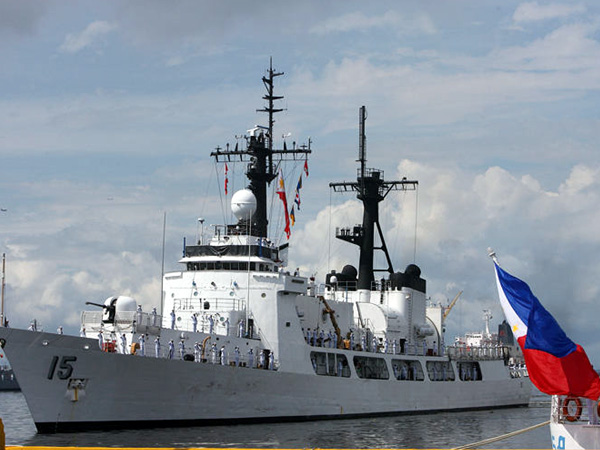
"Our reawakening always starts with a conflict. We have to thank China because its recent movements and strategies in the West Philippine Sea have made us look at our defence policies anew," said Chester Cabalza, a National Defence College of the Philippines professor.
The Philippines has long been confronted with the territorial dispute in the West Philippine Sea but has had limited capabilities to address this security issue, Cabalza said.
Moreover, the country has been focusing on an internal armed conflict for decades that external defence, such as the tug-of-war over territories in these waters, has been a secondary preoccupation for the government, he said.
China's new border patrol policy that would allow its police to board and search ships that "illegally enter" what it considers its territory in the South China Sea "greatly impacts" on the Philippines, Cabalza said.
Defence Secretary Voltaire Gazmin has said the Philippines should protest China's plan while Rep. Rodolfo Biazon, chair of the House committee on national defence, urged President Aquino to convene the National Security Council as "China's move will definitely escalate tensions in the area."
The Philippines' strategy has been to use international legal instruments because "that's the most we can do," Cabalza, a fellow at China's National Defence University, said in a phone interview.
"We cannot contain the maritime strength of China because we lack the capability... We are in a stage of denial, that's why we are heavy on words. A diplomatic protest is the most we can do," he added.
As for the United States helping, Cabalza said that while the US has always been the Philippines' "shield," the country cannot rely much on the US on this particular issue.
"We can't get their commitment as our knight in shining armour in this conflict because the US also does not want to risk their economic interest with China," he said.
China's most recent muscle flexing to lay claim to the disputed territories in the South China Sea is, therefore, a "wake-up call" for the Philippines, Cabalza said.
"If there is a crisis, it is high time [we] amend some policies," he said.
For Dr. Gloria Jumamil-Mercado, dean of the graduate school of the Development Academy of the Philippines who has a doctorate in China Studies, the public should be made aware of the West Philippine Sea territorial dispute in the context of national security.
Mercado, a former senior adviser to the National Security Adviser, said Filipinos understandably focus on more fundamental issues like poverty.
"Who really cares among the country's 90 million people about what's happening in the West Philippine Sea? If a person is hungry, he would not care about China," she said in a phone interview.
"But people have to understand that [the territorial dispute] is a national security issue because it impacts on our territorial integrity and because the economic issues in that area would ultimately impact on the welfare of the people," Mercado said.-Yahoo News Philippines (December 02, 2012 6:24PM)

No comments:
Post a Comment